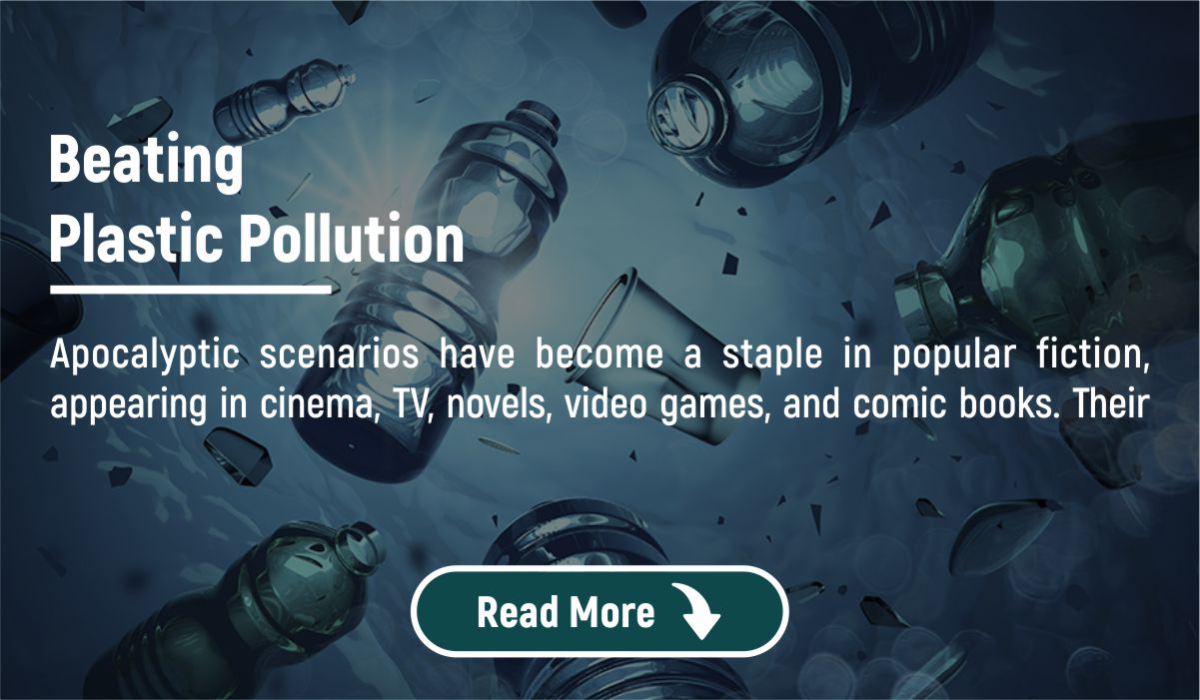
Beating Plastic Pollution
Preventing a "Trash Planet" Future
Apocalyptic scenarios have become a staple in popular fiction, appearing in cinema, TV, novels, video games, and comic books. Their prevalence may stem from the strange comfort of exploring dystopian worlds, knowing we can always retreat to our reality—a temporary escape from the monotony of everyday life.
When we've had our fill of post-apocalyptic settings with Mohawks, modified vehicles, and mutants, we close the book, end the game, or leave the cinema, returning to the safety of our real world. Crucially, these fictional nightmares lack one key element for us that their characters can't escape: genuine fear.
But what does the absence of fear have to do with combating plastic pollution? Simply put, our fiction is at risk of becoming reality, and we are not nearly frightened enough by this prospect.
I once read that "Hollywood has all the answers," and unfortunately, there might be some truth to this. We laugh off fictional apocalypses as absurd fantasies, but these stories often reflect our current situation through a "what if" lens. They speculate on worst-case scenario futures, and while they haven't happened yet, the possibility is always there.
I'm not talking about zombies, aliens, cyborgs, or super mutants. The danger is remarkably simple: plastic pollution. The inevitability of this issue is alarming, yet many remain unfazed. Let's explore what happens when we run out of space for our waste, why this should terrify you, and how we can prevent this grim future.
The Facts
Let's move from fiction to facts.
Plastic is non-biodegradable; it won't disappear on its own. It will continue to haunt us. Much of it ends up in landfills, out of sight and out of mind. The problem is escalating; plastic production has surged from 16.5 million tonnes in 1964 to 311 million tonnes in 2014, according to the World Economic Forum. Many of these plastics are disposable and end up in the wrong places.
To put it in perspective, this amount of plastic is equivalent to the mass of 900 Empire State Buildings. A global analysis last year estimated that since the 1950s, 8.3 billion tonnes of plastic have been produced.
If these figures are hard to grasp, consider this: by 2050, it’s predicted that the oceans will contain more plastic by weight than fish. Plastic microbeads are already in the ocean food chain and, despite some bans, remain a small part of the problem. Plastics are finding their way into fish, birds, and ultimately, humans. Toxins absorbed from plastic at the plankton level work their way up the food chain and end up on our plates.
The Great Pacific Garbage Patch, a floating mass of plastic waste, is estimated to contain 1.8 trillion pieces of plastic, weighing around 80,000 tonnes.
Imagine this waste in our streets and fields, piled against trees. Picture beaches not with pristine waters but a wall of mismatched plastic debris. Envision wild birds, starved and dying with stomachs full of plastic. This is the reality we face if we continue on our current path.
Taking Action
Despite the dire situation, there is hope. The root of the problem is our consumption of plastics. Large-scale actions by governments, councils, and environmental organizations are underway, but they need our support.
Here are some simple steps you can take to make a difference:
- Stop Using Plastic Bags: Plan ahead and bring your own reusable bag. This small change can save hundreds of plastic bags each year.
- Reduce Bottled Drink Consumption: Use a reusable water bottle instead. If you must buy bottled drinks, ensure you recycle them.
- Avoid Disposable Coffee Cups: Opt for a sit-down coffee or use a reusable mug. Avoid single-use coffee pods in favor of more environmentally friendly options.
- Avoid Excess Packaging: Choose products with minimal plastic packaging to send a message to suppliers.
- Recycle: Take responsibility for your waste by recycling. Research local recycling facilities and establish good habits.
- Rehome Old Electronics: Donate or sell working appliances instead of discarding them.
These steps are just the beginning. The key is to consider whether you need to use a plastic item and where it will end up once you’re finished with it.
Ultimately, it’s up to all of us to prevent a plastic apocalypse and keep Hollywood’s horrors confined to fiction.
